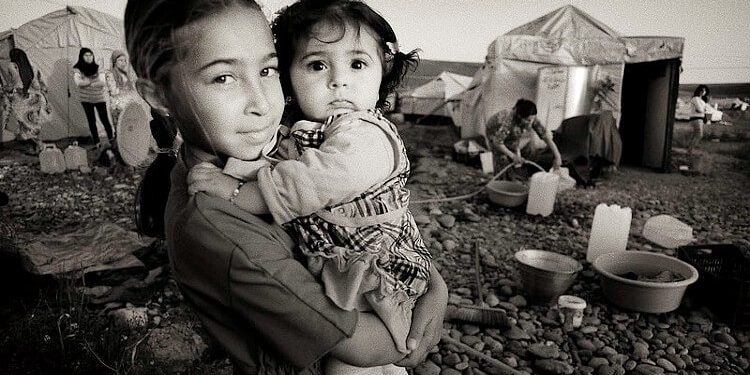How do you support people who have lost everything? With the recent $2.2 million contribution from the United States Agency for International Development, the United Nations World Food Programme aims to answer that question by aiding internally displaced Iraqis and Syrian refugees in northern Iraq.
New Aid Package to Boost Food Security
The United States Agency for International Development (USAID) funds will allow the United Nations World Food Programme (WFP) to provide essential food assistance to 41,000 people living in camps.
This aid is critical for families who have little to no income and rely heavily on WFP’s monthly food provisions.
Addressing Immediate Needs
WFP Deputy Country Director Ekram El-Huni stressed the importance of this support, especially in 2024, as many individuals still cannot return to their homes.
A recent WFP survey at the Al Ja’ada camp revealed that 60% of residents resort to coping strategies that may compromise their long-term well-being.
Commitment to Vulnerable Populations
USAID/Iraq’s Acting Mission Director, Ms. Erin Mone-Marquez, emphasized:
“We stand united in our commitment to internally displaced persons and refugees in camps. We strive to provide essential support for their well-being and security including food assistance and opportunities for new livelihoods.”
“By fostering safe returns, we not only rebuild shattered lives but also pave the way for a more stable and harmonious Iraq.”
Sustained Efforts and Long-Term Goals
Across Iraq, WFP is shifting from crisis response to development and resilience-building activities.
These initiatives have enabled thousands of families to return to liberated areas, creating sustainable livelihoods and improving food security.
Partnerships and Ongoing Support
Without the timely support of USAID and other donor partners like Austria, Canada, the EU, Japan, and multilateral donors, many vulnerable families would face severe food shortages.
WFP remains a crucial partner to the Government of Iraq, implementing long-term sustainable development programs to tackle food insecurity and the adverse effects of climate change and displacement.
Enhancing Social Protection Systems
The digitalization of Iraq’s Public Distribution System is a key component of this assistance.
This transformation aims to improve the efficiency and accuracy of food assistance distribution, ensuring timely aid delivery to those in need.
Global and Local Impact
The impact of USAID’s funding extends beyond immediate food security.
By using cash transfers and electronic vouchers, the assistance encourages beneficiaries to purchase food from local markets, supporting local economies and fostering economic stability in the region.
Rebuilding Lives
In addition to food assistance, USAID’s commitment to fostering safe returns is vital. This approach not only helps rebuild lives but also contributes to the long-term goal of a more stable Iraq.
Consider This
USAID’s $2.2 million contribution to WFP represents a critical step in addressing the humanitarian needs of displaced Iraqis and Syrian refugees in northern Iraq.
By providing essential food assistance, supporting local economies, and enhancing social protection systems, this funding helps ensure that vulnerable populations receive the support they need to rebuild their lives and secure a brighter future.
Sources: THX News & World Food Programme.



